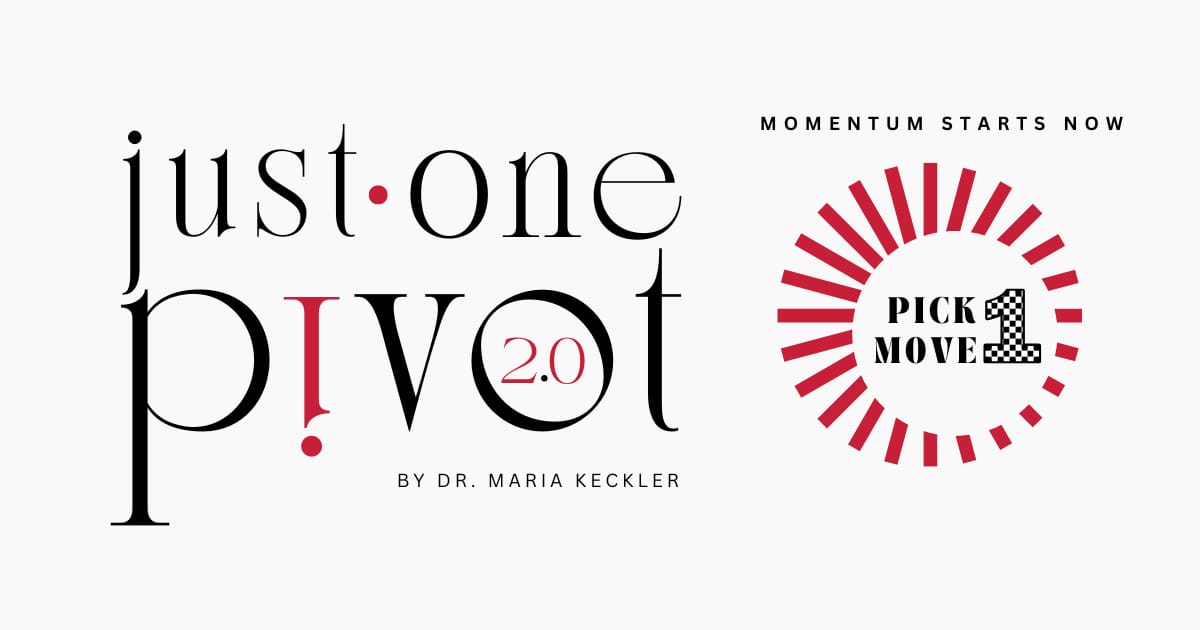- Just One Pivot
- Posts
- P53: Stop the Spinning Beachball: Knowing When Your Brain Hits Empty
P53: Stop the Spinning Beachball: Knowing When Your Brain Hits Empty
What neuroscience reveals about depletion—and why a hiatus might be your smartest pivot

Welcome to Just One Pivot, your weekly pause to find clarity and consider your next best move. If this was sent to you, subscribe to get your own copy next time.
I wonder if you can relate.
As a Type A person, I learned early that success meant climbing — always producing, always executing, always reaching for the next rung of an invisible ladder.
For years, I didn’t even realize that depletion was a thing. I’d arrive at this season feeling like the spinning beachball of death on a frozen computer: all motion, zero progress.
In that state, I’d secretly binge dopamine: scrolling social media, consuming news, streaming shows — anything to spark a false sense of aliveness. Then I’d fight my way back, only to repeat the cycle.
Then a few years ago, I discovered something that changed everything.
Depletion Is Real
Depletion isn’t laziness or lack of discipline. It’s a biological signal, your brain’s way of saying, enough.
Neuroscience shows that prolonged effort taxes the prefrontal cortex (PFC), the part of the brain responsible for executive control, decision-making, and emotional regulation. When the PFC is fatigued, you’re operating on compromised circuitry.
Think of depletion as your built-in alarm system: it protects you from metabolic overload and reminds you that restoration is not optional — it’s essential.
Hiatus as Medicine
Here’s what the science makes clear: rest and strategic hiatuses aren’t indulgences. They’re recovery tools. Breaks restore neural efficiency, consolidate learning, and prevent decision fatigue.
They also activate the default mode network (DMN), the system that sparks your creativity, clarity, and insight. And breaks also lower cortisol, the stress hormone that erodes your resilience when left unchecked.
So think of a hiatus as medicine, not laziness.
The Power of a Hiatus
A well-timed hiatus offers profound benefits:
Cognitive restoration: Executive networks recover, reducing fatigue and sharpening focus.
Creative renewal: Downtime activates the network of brain regions that is most active during rest and introspective thought.
Emotional recalibration: Cortisol levels drop, resetting your stress response.
Perspective reset: Stepping back clarifies what truly matters versus what merely feels urgent.
Pattern interruption: Pauses disrupt automatic behaviors, making intentional change possible.
Pick Your Hiatus Pivot
The most powerful hiatus is the one you’ll actually commit to. Here are four pivots to consider:
Social Media Hiatus: Each November, I delete social apps from my phone. The reclaimed time becomes space for reading, walking, journaling. The world won’t notice your absence, but you’ll notice your renewed presence.
Productivity Hiatus: If you habitually sacrifice rest at the altar of output, try intentional unproductivity. Give yourself permission to be a human being, not just a human doing. The world will not collapse without your constant motion.
News Hiatus: Selective ignorance can be healing. I rely on a daily fact-only summary, and sometimes I step away entirely. The outrage cycle continues without me, and my nervous system thanks me.
“Feeling” Guidance Hiatus: In coaching, I’ve seen how “I feel…” can dominate decisions. Try pivoting to “I know…”. I know choices are grounded in evidence and values rather than fleeting emotions. When you move to “knowing” rather than “feeling” you will feel a greater sense of calm and confidence.
Your Turn
I once heard serial entrepreneur Jesse Itzler speak about why he prioritizes health above all else.
“Let’s say you’re a billionaire. You have a billion dollars. You got the helicopters… And you got a sore throat? And every time you swallow… you just want to get rid of that sore throat more than anything. That’s how important health is…”
And the most powerful insight:
“If you have health, you have hope. If you have hope, you have everything.”—Jesse Itzler
If you honor the rhythms of rest, you will restore the very circuits that make your creativity, clarity, drive, and resilience possible.
Your move.

Maria
P.S. Read my full article on Medium for the complete neuroscience breakdown, cautionary tales from high performers who collapsed before they chose rest, and additional hiatus pivot option, and my own story of ignoring depletion until my body forced me to stop.
And this Thursday, look for your 1-Minute Pivot Spark: One question and idea that will help you pivot from running on reserves to running on purpose.